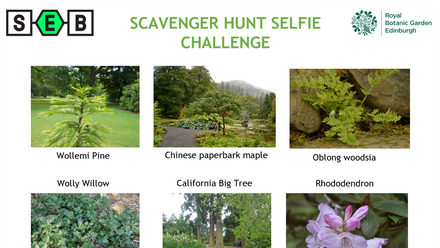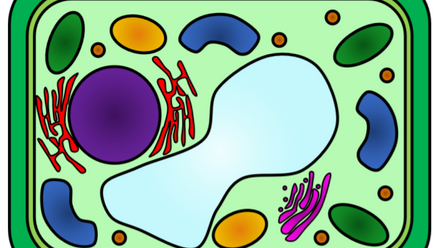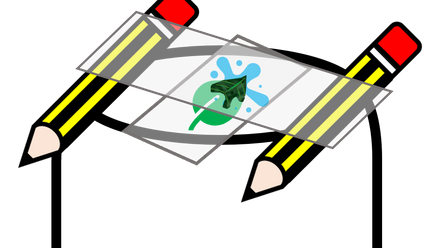The Wonders of Plant Science and Your Curious Questions

Hello explorers! Did you attend one of our SEB events at the Royal Botanic Garden Edinburgh or Southwell Minster's Family Fun Day? Whether you were there or missed out, we've got you covered!

On the 3rd of July 2023, we partnered with the Royal Botanic Garden Edinburgh as a special sneak peek before our big SEB Centenary Conference. We had a blast sharing the magic of plant biology with you!
The fun was out of this world at Southwell Minster on 28th July 2023. The theme was Planet Earth, and we joined in with exciting activities like creating your very own plant pots.
Did you know plant science helps feed the planet, protect nature, and fight climate change? We chatted to your curious minds about these big ideas. Plus, we gave you all the opportunity to "Ask a Scientist" some of your burning questions. If you didn't have a chance to ask your question, you still have time to do it if you click here. We're getting those questions answered by our researchers and scientists. Get ready to uncover amazing plant science secrets - stay tuned right here!
If you missed out, you can download a range of fun activities for families and children to do at home. Take a look at some of the resources here.
For scientists
If you are a scientist landing on this page, welcome! And join in answering these thought-provoking questions!
Ask a Scientist

Why can't we invent new colours?
The colours we see are the result of the way our eyes sendi information about light to our brain. Each colour we see corresponds to a different wavelength of light that our eyes detect.
Inventing new colours isn't possible because human eyes and brains can only work together to detect a certain range of wavelengths. Any new color would need to fit within that range which is why we can't just invent a new colour.
We are learning new things all the time so maybe our understanding of colour will change in the future. Using technology, we may be able to manipulate light in lots of different ways to create visual effects that might appear as "new" colours, even though they really just using the light wavelengeths of colors we already know. However, to really change the way humans can see colour and creating completely new colors is a challenge that involves all areas of science from biology to physics. At the moment it's beyond our capabilities.
Is it fun being a scientist?
Yes. When I decided to be a scientist, the way that I used to see nature, plants, animals and their relationships changed. I started to see the beauty, I started to have fun exploring the connections and, more importantly, I decided to dedicate my life to exploring, understanding and contributing to its protection.
Virginia S. U., aquatic animal scientist
What is your favourite experiment?
I study the body clocks of plants - I bet you didn't know that plants could tell the time! Like us, plants have what is known as a circadian rhythm - an internal body clock with a rhythm of 24 hours that controls almost everything the plant does. My favourite experiment is the first demonstration that these were internal body clocks, not responses to light-dark cycles. If you take a plant that has been growing in 24-hour light-dark cycles and then put it in either constant darkness or constant light for several days, it will continue to have 24-hour rhythms. You can measure these by measuring the amount of photosynthesis, quantifying which genes are switched on or off, or even just looking at the position of the leaves. All of these will continue with a 24-hour rhythm even in constant conditions, proving the clock is inside the plant. Pretty cool.
Katharine H., plant scientist and biology education specialist
Why is space in the sky?
What is the tallest plant?
The tallest plant on Earth is the redwood tree - specifically, the coast redwood (Sequoia sempervirens) holds the record for being the tallest tree species which are mostly found along the coast of California in the United States..
These massive trees are known to grow to incredible heights, often reaching over 300 feet tall or even more. That's the same size as the Statue of Liberty in New York City.
They can grow so tall becuse they have special adaptations that help them to to gather more energy from the sunlight and and more nutrients from the surrounding environment.
How do plants absorb water?
What do you study?
What does a scientist do?
Advance the frontiers of human knowledge using scientific methods.
How do scientists make potions?
Scientists don't actually make potions like the ones you might see in movies or fairy tales. However, they do create mixtures, solutions, and compounds in laboratories for various purposes. These mixtures can be used for experiments.
Scientists might mix substances together in controlled ways. This could involve dissolving solids in liquids, combining different liquids, or even causing chemical reactions that produce new substances. Scientists use equipment like beakers, graduated cylinders, and pipettes to measure precise amounts of substances. Accurate measurements are crucial. Safety is a top priority in laboratories. Scientists wear protective equipment like lab coats, gloves, and goggles to avoid accidents and exposure to harmful chemicals.
Remember, the word "potion" often brings to mind magical or supernatural ideas, but what scientists do is based on careful observation, research, and the principles of chemistry and physics.
What do hedgehogs eat?
Why do flowers have different colours?
What do scientists find out?
Why did woolly mammoths become extinct?
How many species of birds can't fly?
How long did the ice age last?
I want to know how to be an astronaut
What is the animal that is closest to extinction?
Is the xylem and phloem always in the middle of the stem?
Why do you get different coloured vegetables like purple and orange carrots, or different varieties of tomatoes?
Why do people put rubbish in the sea and kill animals?
Why might insects go to light?
What plants attract birds?
What colour were dinosaurs? Were any of them red?
How do you not attract bears?
What is your favourite plant? Why?
How do you not get animals to eat your plants?
What is your favourite experiment?
Why am I here?
How long does it take to become a scientist?
Is an egg a cell?
Why do flowers have different colours?
To differentiate their appearance for animals. Some colours signal danger.
Why are adult stem cells only able to differentiate into some types of cells but embryonic stem cells can differentiate into all?
How does gravity work when the earth is spinning?
In theory could it be possible that using a technology such as crisper to edit human genes to slow down the aging process of the body while the brain continues to age at a normal rate and...
...combine that with artificial organs or stem cell regeneration to repair and prevent the oxidation of organs like the lungs, lead to extending the human life while preserving cognitive functions? if so Would cognitive functions improve due to the increased experience from a longer life? Could the pns develop issues from prolonged use? Might the brain become confused from extended life and potentially "self-destruct?" Could gene editing lead to mutations, resulting in a new human species? What would happen if a person with edited genes had a child with someone whose genes were not edited? Could the child have unusual mutations or a lifespan somewhere between the edited and normal lifespans If two people with edited genes had children, would they pass on the trait, or would the genetic modification need to be reapplied to achieve a similar effect? What may happen if the body rejects the organ?
ANSWER:
We don't have an answer yet, check back in a day or two!
If you are an explorer and have a burning science question, please add your question below:
If you are a scientist, please fill out your answer in the form below:
Other resources
For more resources, please visit the Activity for Kids page.
| DISCLAIMER |
|
We have collated these answers coming from our members and supporters. Although we double-check the answers before publishing them, we do not control the content. Scientists also make mistakes. If you spot a mistake, let us know and we will fix it. |



